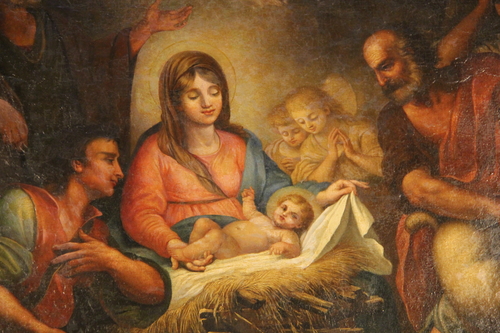
Reclaiming Biblical Truth about Mary, the Mother of Jesus
With apologies to those who have always held her in high regard, I’ve always felt a bit squeamish about focusing on Mary, the mother of Jesus.
I grew up Protestant in a largely Roman Catholic area of the Southwest. Even today, while religious affiliation has diminished, in my hometown of El Paso, Texas, 43.2% identify as Catholic and 42.3% identify with no religion. The remaining 14.5 per cent of residents are divided among Evangelical Protestants, mainline Protestants and other groups.
As a Methodist girl curious about Mary in my largely Catholic community, I noticed she was frequently adorned with a halo in many paintings and icons. I was guilty of saying some flippant things about her to at least one of my Catholic friends, not realizing how offensive such words were.

Recently I learned about the source of my discomfort when I read about Mary, the mother of Jesus, in Vindicating the Vixens: Revisiting the Sexualized, Vilified and Marginalized Women of the Bible, a book edited by Dr. Sandra Glahn. Chapter author Timothy Ralston explains why Mary has been marginalized in his portion of the book: “The Virgin Mary: Reclaiming Our Respect.” He writes, “When the Protestant Reformation drove a wedge between the Roman Catholic Church and its various groups intent on its reformation, the Virgin Mary and traditions surrounding her became casualties. … Her prominence was thought to obscure the person and work of Jesus.”
Ralston goes on to survey the New Testament passages about Mary and remind us of her prominence. He also examines traditions surrounding Mary, separating the biblical from those that are extra-biblical. Finally, he challenges the reader to reclaim the fullness of biblical truth about this significant woman.
Consider getting your hands on a copy of Vindicating the Vixens this Christmas and reading about Mary, the mother of Jesus. Then continue exploring the truth about other women in Scripture who have been sexualized, vilified or marginalized due to lack of attention to or understanding of the biblical text and the cultural setting in which the women lived. The book includes chapters about other women in Jesus’s genealogy: Tamar, Rahab, Ruth, and Bathsheba, as well as additional chapters on Eve, Sarah, Hagar, Deborah, Huldah, Vashti, the “woman at the well,” Mary Magdalene, and Junia.
Happy reading.
Photo courtesy of Lightstock.



